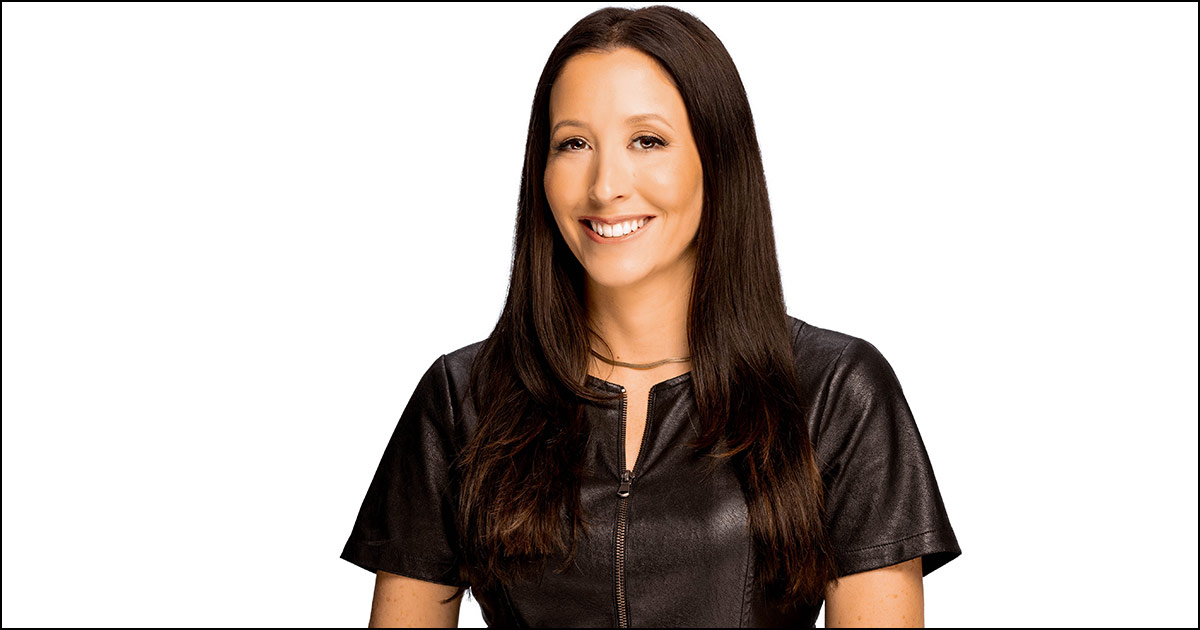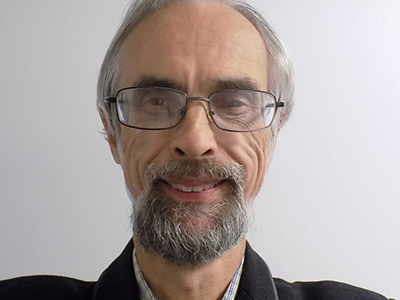Mindy Weinstein Explains How to Use the Power of Scarcity to Drive Sales
Mindy Weinstein studied the psychology of scarcity in the business world and recognized that everything, from limited-time offers to exclusive benefits for members, appeals to a fear of being left out (and a desire to belong) that is hardwired into our brains.

Mindy Weinstein Documents Why the Psychology of Scarcity Is a Path to Marketing Success
Before the COVID-19 pandemic, most business leaders assumed their supply chains were solid out of mutual interest between manufacturers and those who would sell the products. Few consumers paid attention to where the products they bought were made as long as they were inexpensive.
Then in March 2020, there was a run on toilet paper. No one had somehow ever thought it could be in short supply, despite the threat of disasters from earthquakes to hurricanes. A cafe in Australia began accepting TP as payment, while armed robbers in Hong Kong entered a supermarket to steal 600 rolls and nothing else.
Scarcity, or the belief that favorite products might not be available when we want them, is actually a major driver of sales in many different ways, tapping into a primal fear of loss, according to Mindy Weinstein, author of “The Power of Scarcity: Leveraging Urgency and Demand to Influence Customer Decisions.”
"This is a topic that has been studied academically for 200 years, but there has been surprisingly little about it in the business world," she said. "Using fMRI scanners, we can now see the neurological activity in our brains when faced with products that are perceived as scarce, which raises their value and leads to a quick decision, even in the face of contrary information."
The amygdala region of the brains of our distant ancestors responded to perceived threats by fleeing, and today, when we are deluged with 11 million bits of information per second, the same part of the brain helps us make quick decisions when faced with buying scarce products.
"Our fear of loss is much greater than the attractiveness of mere gain, according to the results of many studies," Weinstein reported. "This can kick in when you are not able to buy hard-to-get tickets, the last available items on sale, or being left out of an exclusive group."
Major companies recognize the power of scarcity, which they can create in many ways, such as Starbucks' seasonal Pumpkin Spice Latte, TJ Maxx's intentionally inconsistent inventory that makes availability uncertain, and Booking.com's countdown of desirable rooms at a good price that need to be bought right away.
"We might not really believe the items are truly scarce, but we may feel others will believe that and so need to act immediately," Weinstein explained. "A lot depends on whether the source of the information is credible. If Disney says you need to get in a virtual queue and you see long lines or if Nintendo claims it is having trouble meeting demand for a product and it is hard to find at stores, it is believable."
Best Buy's flash sales and Amazon's lightning sales are credible because consumers have the experience to know these have real deadlines that require a quick decision.
But contrary information or the perception that the scarcity pitch is just a sales tactic to manipulate consumers will backfire, and the brand will lose its reputation for credibility. If a promotion is run too often, customers will believe that the discounted price will return soon. If there are too many restrictions that minimize the value of the offer, prospects will stop looking at the fine print.
Integrating Academic Discoveries and SEO Marketing
Weinstein grew up in a family of entrepreneurs. After earning her BA in marketing at Vanguard University in Costa Mesa, California, in 2001, she co-founded Financial Victory Institute (FVI) and served as vice president of marketing, spearheading new products and services, as well as training credit counselors. She added an MBA from the W.P. Carey School of Business at Arizona State University in 2005.
"My career tipping point came in 2007 when I realized that online marketing was going to be the major growth area for the future of business, and I was hired by Foster Web Marketing the next year, juggling that and VFI until 2010," Weinstein recalled. "I had always wanted to be a writer since I was a little kid using my mother's typewriter, and I was delighted to discover that writing Searched Engine Optimized [SEO] content with 'keywords' that would lead potential customers would become an increasingly valuable skill."
Google initially prioritized a rigid formula for article and blog headlines and the number and placement of keywords in the content, but now to get on the first pages of search results requires excellent and authoritative writing that is not syndicated.
"They want the most 'natural' treatment of a topic," Weinstein explained. "One might prioritize a 1,200-word blog to treat the issues thoroughly and objectively, while 200 words with photos or videos might be at the top of another search. There are not firm, simple rules, and you have to experiment with your topics and see how much traffic they attract in comparison with competitors."
She stayed with Foster until 2013, when she joined Bruce Clay, Inc. as SEO manager, rising to director of training until 2016 when she decided to found Market Mindshift.
"I was traveling a quarter of the time and was being asked to work with overseas accounts, which would have grown that to one-third, so I was away too often from my family and decided that I needed my own firm to have a more balanced life," she recalled. "Now, I help companies of all sizes with their digital marketing, from SEO to content, and I still have some of my original clients."
She now has four employees and a handful of consultants she works with regularly.
But if all that were not enough, she had begun a new career of teaching marketing, starting at Vanguard in 2011, then Grand Canyon University (GCU) in 2016, the University of Denver in 2018, and in 2021, Wharton at the University of Pennsylvania, and the Columbia Business School. Teaching now takes up about half her overall time, more intensely during the school year, and with presentations to companies and conferences, she has trained over 15,000 in effective marketing.
One insight she wants small-to-medium companies to understand is that marketing needs to be not just digital but integrated with whatever is relevant to the business, whether cable TV ads, events, printed mailers, or email.
"Too many CEOs don't have a background in marketing to understand how to gain and retain customers," Weinstein says. "Regardless of your position, it's important to learn how to market yourself in order to move up in the ranks of a corporation, switch companies, or to build trust with a prospective client."
Persuasion in Business
From 2017, Weinstein worked hard on the subject of her dissertation at GCU, general psychology, and how it can be applied to understanding how scarcity drives customer behavior until she received a Ph.D. in 2020. This led to writing the book, a podcast, and establishing a resource of free material called Persuasion in Business.
Companies work hard to establish a reputation for their brand because consumers often cut through too many choices by buying a product they have already used, ranging from 49% of Gen Z (those born 1997–2012) to 75% of Baby Boomers. As we age, our brains tend to be slower in making decisions, and we have more experience to draw on.
Another way businesses can make it easier for prospects to decide to purchase is to offer a restricted number of choices. Trader Joe's, for example, offers just 14 types of pasta sauces, while the typical grocery store has 144. Trader Joe's doesn't use flash sales but is continuously ranked No. 1 in consumer preference when calculating sales on a per-square-foot basis.
Coupons have proven a very effective way to drive sales. According to Weinstein, in 2020, $189 billion in coupons were offered by 3,282 manufacturers. Over 52 million redeemed mobile coupons, and online coupon users spent, on average, 24% more than other shoppers. Three-quarters of consumers follow their favorite brands on social media to find coupons.
Coupons can serve both the fear of losing out and the desire for gain, she writes. One study found that using coupons even made people happy, measured by the level of hormones in the blood, cardiac activity, mood, respiration, and perspiration.
Kohl's, a retailer with over 1,200 locations, has used digital coupons to personalize offers based on past purchase history and in-store Wi-Fi that can collect information on shopping patterns. Dunkin' Donuts incentivizes customers to download its app with a discount and then sends more deals. Artificial intelligence allows companies to design more personalized offers.
"Coupons as a time-related scarcity tactic need to follow some rules," Weinstein wrote. "First and foremost, the message needs to be clear (e.g., “20% off your entire order”). Second, there needs to be a time restraint to create urgency ('offer expires 1/31'). Third, the coupon must get in front of customers, which could mean digital coupons offered on the website, shared through social media or sent via email. Direct mail and newspaper inserts are also viable ways to distribute coupons. Finally, avoid offering the same coupon repeatedly. Doing so will diminish the value of the product and/or brand."
Another tactic that works well is to limit the number of products one person can buy, which implies scarcity.
Putting bestsellers on a table helps bookstore visitors (or those shopping at one virtually) make a decision about what to buy because the assumption is that word-of-mouth by readers has driven sales. This also appeals to the desire not to be left out and to be part of those in-the-know.
Service bundles of limited editions or limited time for availability can work the same way.
"When I told people I was working on a book about product scarcity, almost everyone had a story to tell about their own experience," Weinstein said. "In fact, as much as I know about the psychology behind this, I even find myself making buying decisions because I think something won't be available later. Fear of loss, of being left out, of not joining an exclusive group or missing out on getting something that is popular, these things are really baked deep into being human."
About the Author

Scott S. Smith has had over 2,000 articles and interviews published in nearly 200 media, including Los Angeles Magazine, American Airlines’ American Way, and Investor’s Business Daily. His interview subjects have included Bill Gates, Richard Branson, Meg Whitman, Reed Hastings, Howard Schultz, Larry Ellison, Kathy Ireland, and Quincy Jones.
Startup Resources
- Learn more about Startups
- Visit the TRUiC Business Name Generator
- Check out the TRUiC Logo Maker
- Read our Business Formation Services Review
- Find Startup Ideas
- Explore Business Resources
Form Your Startup
Ready to formally establish your startup? Click below to read our review of the best business formation services!
Best Business Formation Services